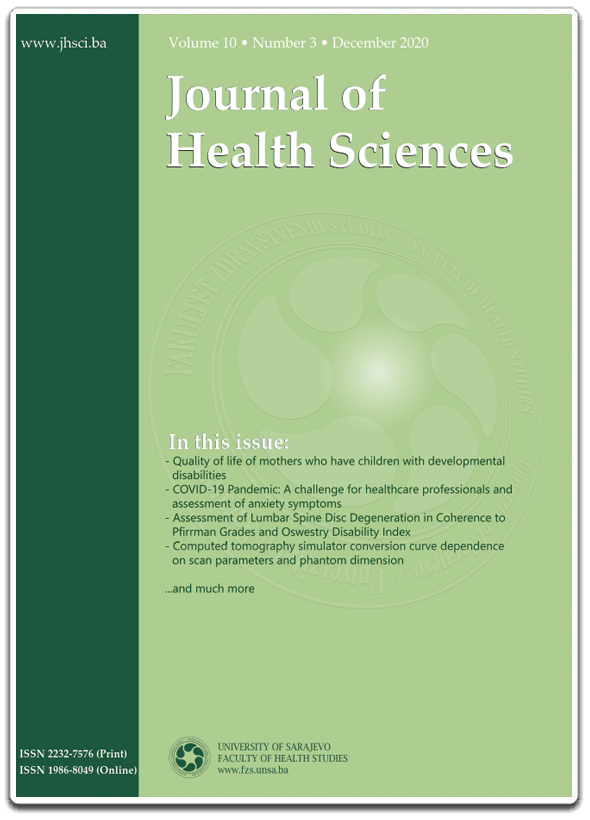Changes in stress intensity associated with gastrointestinal health in students population during the COVID-19 lockdown
DOI:
https://doi.org/10.17532/jhsci.2023.1997Keywords:
COVID-19, gastrointestinal symptoms, social lockdown, studentsAbstract
Introduction: The COVID-19 pandemic and the restrictions from routine life habits had a tremendous impact on psychological and physical health of youth. It is known that stress, anxiety and depression can be associated with the development of gastrointestinal (GI) symptoms and known to exacerbate present GI symptoms. The pandemic has forced many changes in the behavior of student population such as the studying in an asocial environment. The aim of this study was to examine and quantify the influence of stress onto the quality of life and GI symptoms in the student population in Bosnia and Herzegovina (B&H), before and during the pandemic lockdown.
Methods: A total of 279 students from B&H were assessed for their GI and emotional status in pre-COVID period and during the COVID period using validated instruments: GI symptom rating scale (GSRS), Visceral Sensitivity Index, and the Patient Health Questionnaire 15-item Somatic Symptom Severity Scale.
Results: The results showed that moderate and severe GI symptoms were more frequently present among student population at the time of the pandemic than in period before pandemic. The most pronounced symptoms were bloating syndrome and abdominal pain syndrome according to the GSRS.
Conclusions: We concluded that concern for one’s health and changed way of life are directly related to a worsening of the symptoms of GI disorders in the student population. Further research should go in the direction of early prevention of GI disorders that take root in early youth and later develop into chronic forms.
Downloads

Downloads
Published
License
Copyright (c) 2023 Lejla Usanovic, Nikolina Tomic, Nerma Custovic, Beate Niesler, Lejla Pojskic

This work is licensed under a Creative Commons Attribution 4.0 International License.










